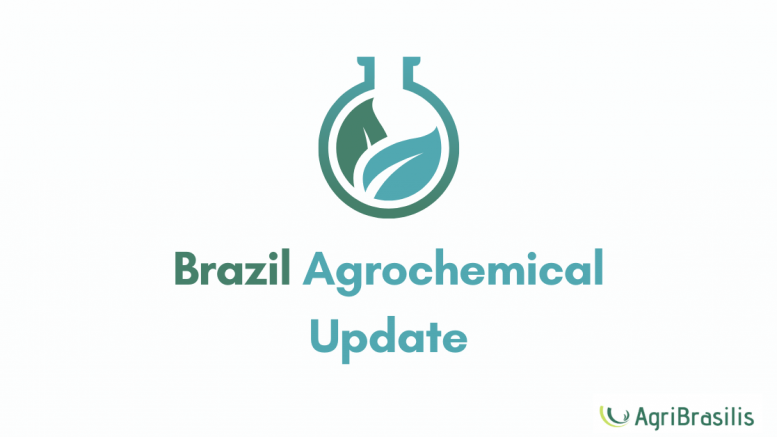Brazil Agrochemical Update
- Andali (a joint venture between the American cooperative CHS and BRFértil) and Rumo inaugurated a fertilizer terminal on the North-South Railway. Project should make it possible to transport fertilizers from Port of Santos, in the State of São Paulo, to the State of Goiás. It is expected that transportation of cargo in the railroad network Malha Central will reach 500 thousand tonnes in 2022 and 800 thousand tonnes in 2023. (Andali; Rumo)
- Bayer launches a power generation barter operation
along with Umoe Bioenergy sugarcane miller. Sugarcane market will be able to use energy cogeneration to pay for purchase of agricultural pesticides. Acquisition of inputs through barter is already a widespread modality in crops such as coffee, corn and soybeans. (Bayer; Umoe Bioenergy) - Syngenta acquires agricultural inputs chain Agro Jangada, from the State of Mato Grosso do Sul. With this acquisition, Syngenta will have about 60 retailer stores. (Syngenta)
- Agriculture and Agrarian Reform Commission should hold third and final public hearing in August about the Pesticide Bill 1459/2022, a law change proposal for pesticide registrations. Debate will bring together representatives from the UN, Ibama, Anvisa and the Ministry of Agriculture. (CRA)
- Nutrien enters the financial market and launches a credit card for agribusiness without brand or annuity, that guarantees
to farmers more attractive values for the company’s products and services, in addition to payment terms that accompany the agricultural season. Card will be made available to an initial group of 500 customers, with a limit of up to US$ 48 thousand. (Nutrien) - Approximately 20 thousand L of paraquat were seized in the Itapoá Port, in the State of Santa Catarina. Product was hidden in aluminum sulfate cargo. (Receita Federal)
- Glyphosate import tax was reduced from 9.6% to 3.8%. Glyphosate and its monoisopropylamine salt were included in the List of Exceptions to the Mercosur Common External Tariff. Measure aims to solve supply issues and cost increase in the production chain and will be in force for one year. (Ministry of Economy)
- Paraná State Agricultural Defense Agency and Paraná State Rural Development Institute release a technical note advising on correct use of herbicides that contain dicamba. Application not in compliance with the manufacturer’s guidelines can cause drift, that causes damage to sensitive plants and environmental contamination. (Adapar; IDR-Paraná)
- Resolution of the National Health Surveillance Agency bans the active ingredient carbendazim in pesticides. Resolution refers to all technical and formulated carbendazim-based products currently registered or in process of registration. (Anvisa)
- Survey performed by the Commercial Association of Rio de Janeiro, in partnership with other entities in the state, indicates that illegal market causes losses of approximately US$ 67.4 billion. In the pesticide category only, the loss is of approximately U$ 3 billion. (ACRJ; Fecomércio RJ; Firjan)
- Fertilizer made from algae Lithothamnium calcareum is an alternative to reduce national dependence on imports. Studies performed by the Federal University of Goiás State prove an increase in sugarcane yields through the use of this fertilizer. (UFG)
- Green Composting Plant of Campinas seeks to commercialize organic fertilizer produced with sewage sludge. The composting plant is the only one in the country that uses sewage, processing 100 tonnes of waste daily, generating 30 tonnes of fertilizers, applied in parks, forests and flower yards. Campinas City Hall plans to sell the overflow production. (Campinas City Hall)
- Official Seal of Functionality for Agricultural Adjuvants includes another 14 manufacturers, such as Agrocete, Apex Agro, Equilex Chemicals, Vittia, among other companies. Seal aims to guarantee quality of the products, since adjuvants do not require official registration. (Agronomic Institute of Campinas)

READ MORE:

